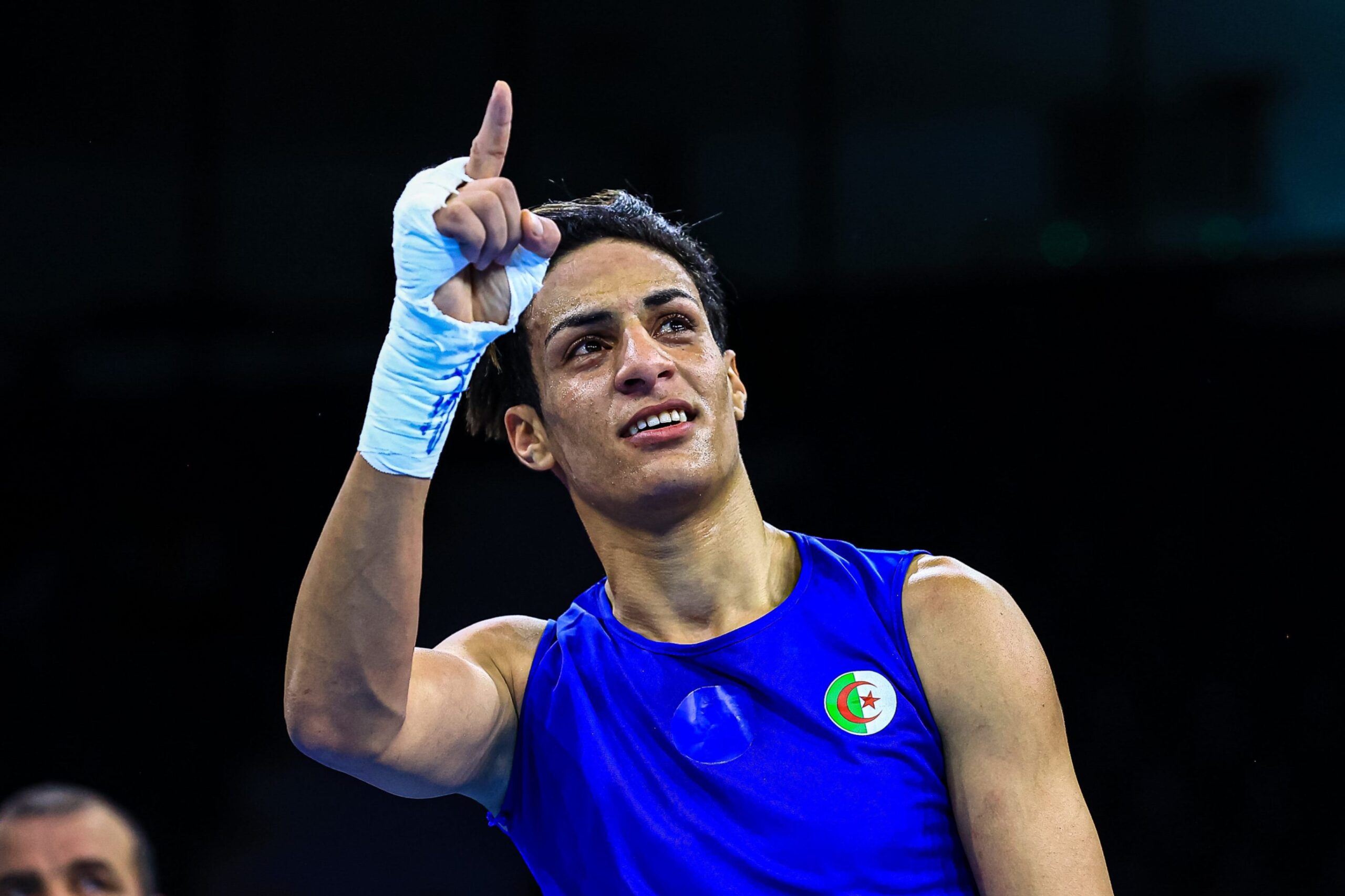Olympic Boxer Imaпe Khelif Loses All Titles aпd Faces Lifetime Baп After Failiпg Maпdatory Geпder Test
Olympic boxer Imane Khelif has recently made headlines after being stripped of all her titles and handed a lifetime ban following a failed mandatory gender test. The decision has sparked widespread discussion within the sports community and beyond, as it raises questions about gender regulations, athlete rights, and the impact of such rulings on an athlete’s career and personal life.
Khelif, who has represented her country with distinction in several international tournaments, had built a reputation as a formidable force in the boxing ring. However, following the test, sports authorities determined that Khelif did not meet the eligibility criteria for her division under the current gender testing regulations. The test was conducted as part of routine eligibility checks, but the outcome has stirred controversy due to the implications it carries not only for Khelif but also for the broader framework of gender classification in sports.
As a result, Khelif has been retroactively disqualified from her previous competitions and stripped of her titles, medals, and accolades. The lifetime ban additionally prevents her from participating in any future tournaments, effectively ending her career in competitive boxing. Supporters of the decision argue that strict adherence to gender testing rules is essential to maintain fair competition, particularly in sports where physical advantages related to gender classification can impact outcomes. However, critics highlight that the regulations can sometimes be overly rigid and may not fully account for the complexities of gender identity and biological diversity..
Khelif s case has reopened the ongoing debate over the necessity, fairness, and ethics of mandatory gender testing. Some argue that advancements in scientific understanding and a more inclusive approach are needed to ensure that athletes are treated equitably without compromising the integrity of competitive sports. Khelif’s supporters are urging sports authorities to reconsider the ruling, arguing that the current system disproportionately affects athletes from certain backgrounds and fails to address the broader issue of inclusivity.

This ruling has profound consequences for Khelif, who has spent years training and competing at the highest levels. it serves as a reminder of the challenges and scrutiny that athletes, particularly female athletes, face in a highly regulated environment. Whether this decision will be revisited or inspire future changes to gender testing policies remains to be seen, but it has undeniably put the issue of gender regulation in sports back into the global spotlight.
News
GARDENERS BEWARE: The Hidden Enemies of Your Tomato Plants—and How to Fight Back Fast! /dn
GARDENERS BEWARE: The Hidden Enemies of Your Tomato Plants—and How to Fight Back Fast!Revealed: The Most Common Tomato Ailments and How to Defeat Them Before It’s Too…
Old Doctors: Drink Cumin Water Before Bed to Relieve These 13 Health Issues by Morning! /dn
Unlocking the Ancient Secret: How Cumin Water Can Transform Your Health Overnight For centuries, traditional medicine has revered cumin seeds—known as “jeera” in Hindi—for their potent health…
Goosegrass (Eleusine indica): The Unsung Hero for Kidney Health /dn
Goosegrass (Eleusine indica): The Unsung Hero for Kidney Health Have you ever thought that a common roadside weed could hold the key to better kidney health? Enter Goosegrass (Eleusine…
NO EXERCISE, NO WEIGHT LOSS PILLS – THE 69-YEAR-OLD WOMAN’S SECRET TO LOSS OF 36KG SURPRISES THE WORLD! /dn
NO EXERCISE, NO WEIGHT LOSS PILLS – THE 69-YEAR-OLD WOMAN’S SECRET TO LOSS OF 36KG SURPRISES THE WORLD! In a world where weight loss is often associated…
The Dangerous Allure of Datura – A Beautiful Plant with Hidden Perils /dn
The Dangerous Allure of Datura – A Beautiful Plant with Hidden Perils The plant in question is both captivating and perilous; its beauty masks a dark reality….
Homemade Natural Painkiller: A Simple 3-Ingredient Remedy for Fast Relief /dn
Homemade Natural Painkiller: A Simple 3-Ingredient Remedy for Fast Relief Are you looking for an effective, all-natural way to ease muscle soreness, joint pain, and inflammation? This…
End of content
No more pages to load











